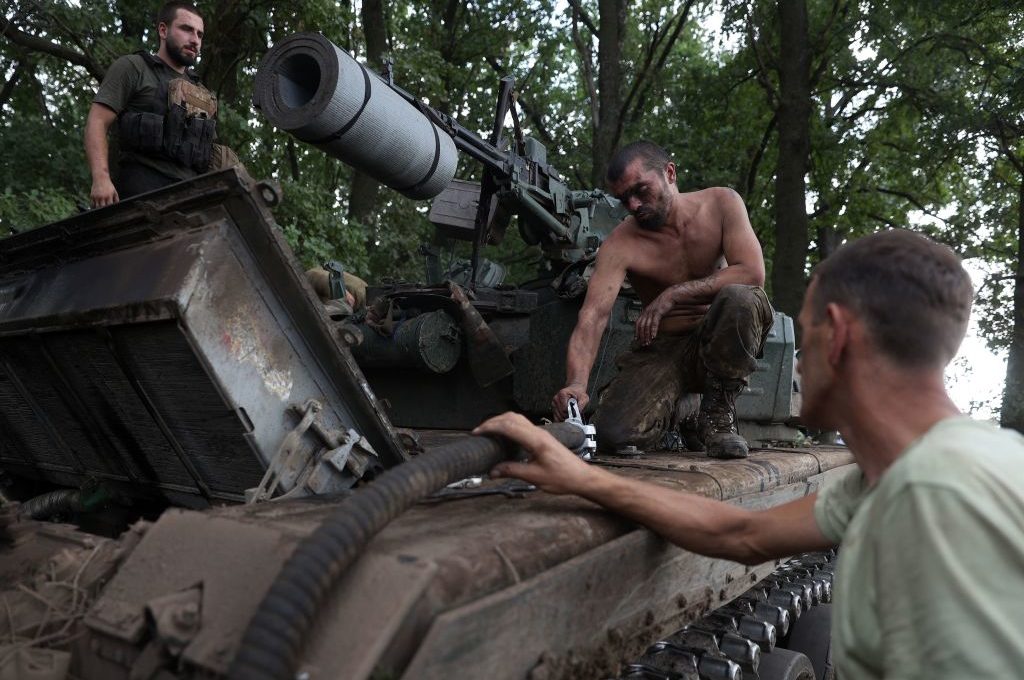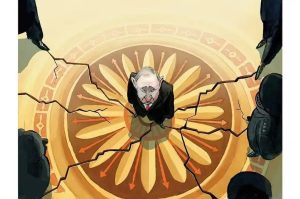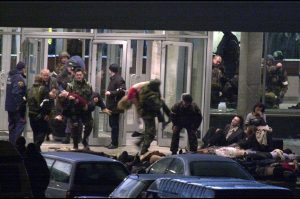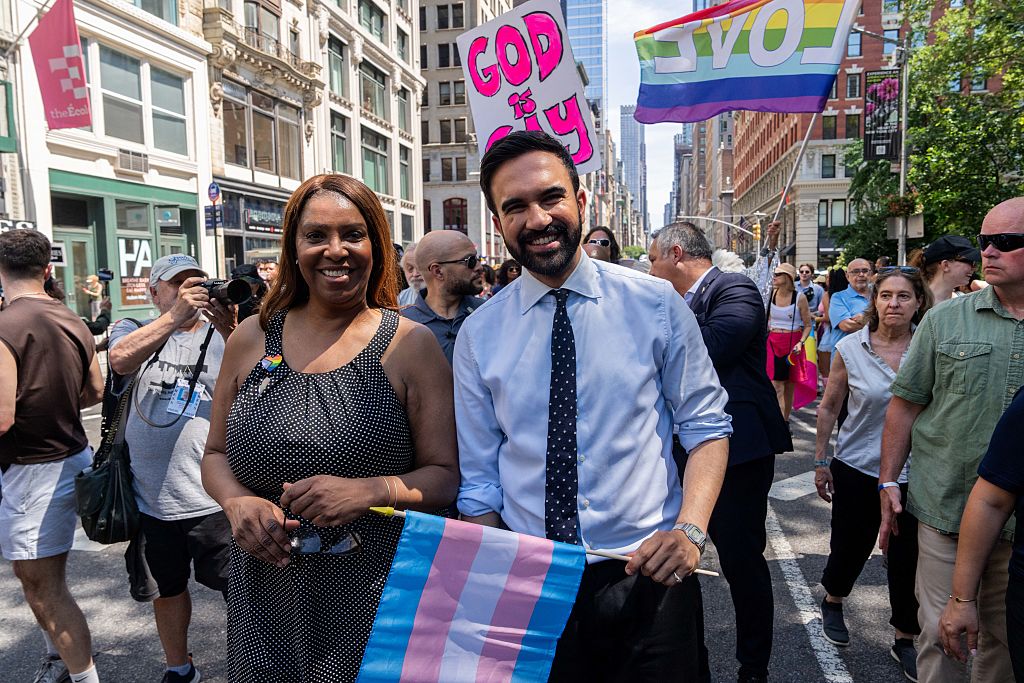The strategic Ukrainian port city of Mykoliav, that has been under constant Russian bombardment since the onset of war, was locked down for an entire weekend in early August as troops searched for Russian collaborators that had been calling in locations of Ukrainian troops and ammunition. The government arrested scores of traitors during their house-to-house search. Meanwhile in the capital Kyiv, President Volodymyr Zelensky has also been sounding the alarm over Russian collaborators after firing both his prosecutor-general and head of the intelligence agency for treason. The former spy chief was a close childhood friend of the president. There are allegations that the entire intelligence agency is riddled with spies, with many defecting to Russia in the early days of the invasion.
It’s these Russian sympathizers inside the Ukrainian government that help explain Russia’s rapid advance in the country’s southeast during the early days of the invasion. Orders from Kyiv were ignored, and bridges targeted for demolition were not blown up.
Why are there so many Russian sympathizers in a country that’s being bombed and tortured by a brutal regime? Are Ukrainians not united in their hatred of Russia and the brutal Putinist regime that is responsible for genocide, rape, torture and more?
The answer is that this conflict is also a civil war between a majority that seek closer ties with the West and a significant minority that would rather be tethered to Mother Russia. It’s considered treasonous these days to frame the conflict as anything other than as a fight between “good and evil,” between authoritarianism and democracy.
But the existence of a sizable minority of pro-Russian Ukrainians complicates this Biblical narrative. Indeed, the brutality of the Russian invasion makes this bloc’s loyalty to Moscow all the more striking.
The roots of this conflict go back to the 2013 Maidan revolution, also called the revolution of dignity, when Ukrainians seeking closer ties to Europe rose up against the thuggish pro-Russian president Viktor Yanukovych and drove him from office. The president was from the Russian-speaking Donbas; it was understandable that his supporters came out to protest against his ouster. The new government in Kyiv had also revoked Russia’s status as a regional language and the proud citizens of the region were naturally outraged. They wanted no part of a country that denied their language and culture and history and that smashed their Lenin statues.
However, instead of fostering dialogue with those that were hostile to the revolution, Kyiv slandered them as “Putin’s puppets” and dismissed their grievances as the result of “brainwashing by Russian propaganda.” When the people in the East demanded their own state, the government sent in the army. It didn’t help that the Kremlin was financing the insurrection and sending in weapons and mercenaries. It was easier then to deny the messy reality and paint the conflict to the West as a simple war between Ukraine and Russia.
The war in the Donbas eventually puttered out into a frozen conflict, but the pro-Russians that remained in Ukraine remained hostile to the idea of a European Ukraine. They founded a new party, the Opposition Bloc, headed by Viktor Medvedchuk, a billionaire and close friend to Putin. The party’s leaders owned numerous television stations and aggressively pushed for closer ties with Russia while trolling Zelensky’s government. They were the largest opposition party in parliament in 2021 and were polling at around 30 percent. It seemed possible then they might flip Ukraine towards Russia once again and their popularity was thus seen as a direct challenge to the revolution. Just a few months ago, one in every three Ukrainians favored Putin to Biden. It was a large minority in a country that had already lost four million pro-Russians to the separatist republics.
Zelensky has a dictatorial side too; eventually tiring of their constant attacks, he shut down their television stations last year and arrested Medvedchuk. It was done by executive order and without the consent of the courts. His actions were supported by a White House hostile to “Russian interference” in Ukraine and seeking payback for Putin’s supposed help electing Trump. This extrajudicial clampdown on the Russian opposition freaked out the Kremlin, which realized that it was locked out of Ukrainian politics. It’s this illegal banning of Russian media and politically motivated arrests that many point to as the real reason for Putin’s brutal invasion. It also explains his description of them as “fascists.” He felt that he had no choice anymore.
The recent castration of a Ukrainian PoW that shocked the world was committed by a soldier from the Donbas. It’s said that they’re far more brutal than the Russian troops because they’re motivated by pure hatred. It’s Cain vs Abel in some parts of the East.
Unless modern Ukraine finds a way to accommodate and not alienate its pro-Russians, they will likely be fighting among themselves forever. And more weapons will only exacerbate the problem. The solution ironically is for Ukraine to become more “European” and enshrine the rights of its minorities, whether Russian or Hungarian speakers. That should not be a problem for a country that desperately wants to become European.

























